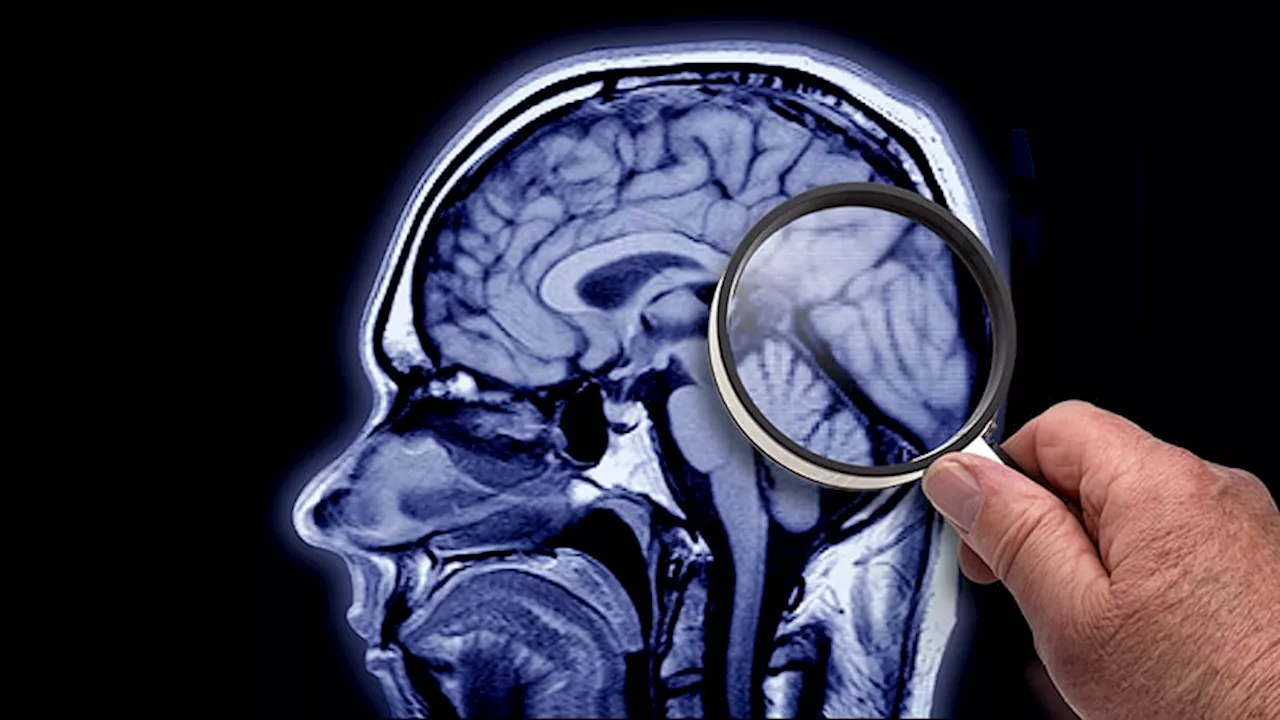This article explores the rise and fall of simufilam, an experimental Alzheimer's drug that initially sparked hope for a cure but was later revealed to be built on fabricated data. The story highlights the dangers of scientific misconduct, the importance of independent verification, and the impact of such revelations on public trust in medical research.
On May 3, 2021, Matt Price, a Harvard-trained epidemiologist, drove his father, Stephen, to a medical strip mall for his first dose of an experimental Alzheimer's drug called simufilam. Developed by Cassava Sciences, a Texas biopharma company, simufilam promised to not only alleviate symptoms but potentially cure Alzheimer's by targeting its root biochemical cause - the amyloid protein buildup. The drug's development was met with both excitement and skepticism.
Matt Price, despite his scientific background, had reservations about Cassava's theory, which hadn't been independently validated. These doubts were soon confirmed by a whistleblower who presented evidence suggesting that lab studies supporting the amyloid hypothesis, the foundation of simufilam's development, were based on fabricated data. This revelation cast a dark shadow over the entire field of Alzheimer's research, highlighting the rampant exaggeration, hype, and outright fraud that had plagued it for decades. The situation underscored a broader concern: the erosion of public trust in clinical research due to the prevalence of spurious findings.The story of simufilam is a cautionary tale about the dangers of scientific misinformation and the need for rigorous scrutiny in medical research. The initial promise of a revolutionary cure for Alzheimer's, fueled by Cassava's claims and the media frenzy surrounding simufilam, quickly unravelled when concerns were raised about the authenticity of the underlying data. The subsequent investigation by neuroscientists Geoffrey Pitt and David Bredt, along with neurologist Matthew Schrag, revealed alarming evidence of image manipulation in simufilam's research. Schrag, using specialized image analysis software, meticulously examined the research images and uncovered undeniable proof of digital alterations.This expose sent shockwaves through the scientific community and beyond. It raised serious questions about the validity of the entire simufilam project and the ethical conduct of Cassava Sciences. The company vehemently denied any wrongdoing, but the evidence was too compelling to ignore. The FDA launched an investigation into the matter, and the stock price of Cassava Sciences plummeted. The simufilam saga became a symbol of the fragility of scientific progress and the importance of maintaining high ethical standards in research. It serves as a reminder that even the most promising breakthroughs can be tainted by deception, and that critical evaluation and independent verification are essential safeguards against scientific fraud
ALZHEIMER's DISEASE SCIENTIFIC FRAUD CLINICAL RESEARCH DRUG DEVELOPMENT SIMULIFLAM CASSAVA SCIENCES
United States Latest News, United States Headlines
Similar News:You can also read news stories similar to this one that we have collected from other news sources.
 Updated Alzheimer's Disease Evaluation Guidelines Released by the Alzheimer's AssociationThe Alzheimer's Association has issued new clinical practice guidelines for evaluating individuals suspected of having Alzheimer's disease (AD) or AD-related neurodegenerative disorders. These guidelines provide updated recommendations for both primary and specialty care settings, marking the first update for specialists since 2001 and the introduction of guidelines for primary care physicians.
Updated Alzheimer's Disease Evaluation Guidelines Released by the Alzheimer's AssociationThe Alzheimer's Association has issued new clinical practice guidelines for evaluating individuals suspected of having Alzheimer's disease (AD) or AD-related neurodegenerative disorders. These guidelines provide updated recommendations for both primary and specialty care settings, marking the first update for specialists since 2001 and the introduction of guidelines for primary care physicians.
Read more »
 Alzheimer’s Caregivers Share How to Care for Someone With Alzheimer’sLearn tips on how to care for a loved one with Alzheimer’s from people who have been there themselves.
Alzheimer’s Caregivers Share How to Care for Someone With Alzheimer’sLearn tips on how to care for a loved one with Alzheimer’s from people who have been there themselves.
Read more »
 Misdiagnosis of LATE Dementia as Alzheimer's Highlights Need for Objective CriteriaA new report published in Alzheimer's & Dementia: The Journal of the Alzheimer's Association emphasizes the urgent need for 'objective criteria' to diagnose and stage various dementia types, including LATE (limbic-predominant age-related TDP-43 encephalopathy). LATE, often mistaken for Alzheimer's, is characterized by changes in the TDP-43 protein in brain tissue and frequently coexists with Alzheimer's disease pathologies. The proposed criteria aim to improve clinical differentiation between LATE and Alzheimer's, leading to more accurate diagnoses and tailored treatment strategies.
Misdiagnosis of LATE Dementia as Alzheimer's Highlights Need for Objective CriteriaA new report published in Alzheimer's & Dementia: The Journal of the Alzheimer's Association emphasizes the urgent need for 'objective criteria' to diagnose and stage various dementia types, including LATE (limbic-predominant age-related TDP-43 encephalopathy). LATE, often mistaken for Alzheimer's, is characterized by changes in the TDP-43 protein in brain tissue and frequently coexists with Alzheimer's disease pathologies. The proposed criteria aim to improve clinical differentiation between LATE and Alzheimer's, leading to more accurate diagnoses and tailored treatment strategies.
Read more »
 CMV Infection and Alzheimer's Disease: What's the Link?A new study suggests a possible connection between cytomegalovirus (CMV) infection and Alzheimer's disease. Researchers found CMV antibodies in various tissues of Alzheimer's patients, raising questions about the role of CMV in the development of the disease. However, experts emphasize that the study doesn't definitively prove causation and more research is needed. The article discusses the study's findings, potential links between CMV and Alzheimer's, ways to protect yourself from CMV, and general tips for reducing your risk of Alzheimer's.
CMV Infection and Alzheimer's Disease: What's the Link?A new study suggests a possible connection between cytomegalovirus (CMV) infection and Alzheimer's disease. Researchers found CMV antibodies in various tissues of Alzheimer's patients, raising questions about the role of CMV in the development of the disease. However, experts emphasize that the study doesn't definitively prove causation and more research is needed. The article discusses the study's findings, potential links between CMV and Alzheimer's, ways to protect yourself from CMV, and general tips for reducing your risk of Alzheimer's.
Read more »
 Teacher Reconnects with Alzheimer's-stricken Mentor to Preserve His Geological WisdomClay Morton, a science teacher, reconnects with his former geology professor, Dr. Walt Manger, who has been diagnosed with Alzheimer's disease. Morton visits Manger monthly to go over old geology slides, hoping to preserve as much of his mentor's brilliance as possible. Despite Manger's memory loss, their sessions remain a special and meaningful bond for Morton.
Teacher Reconnects with Alzheimer's-stricken Mentor to Preserve His Geological WisdomClay Morton, a science teacher, reconnects with his former geology professor, Dr. Walt Manger, who has been diagnosed with Alzheimer's disease. Morton visits Manger monthly to go over old geology slides, hoping to preserve as much of his mentor's brilliance as possible. Despite Manger's memory loss, their sessions remain a special and meaningful bond for Morton.
Read more »
 How Insulin Affects Alzheimer's + 2 Diets That May Lower The RiskThis article investigates the link between insulin resistance and Alzheimer's disease. It explains how insulin resistance can impact brain health and memory function, and highlights two dietary approaches – intermittent fasting and the ketogenic diet – that may help lower insulin levels and reduce the risk of developing Alzheimer's.
How Insulin Affects Alzheimer's + 2 Diets That May Lower The RiskThis article investigates the link between insulin resistance and Alzheimer's disease. It explains how insulin resistance can impact brain health and memory function, and highlights two dietary approaches – intermittent fasting and the ketogenic diet – that may help lower insulin levels and reduce the risk of developing Alzheimer's.
Read more »
